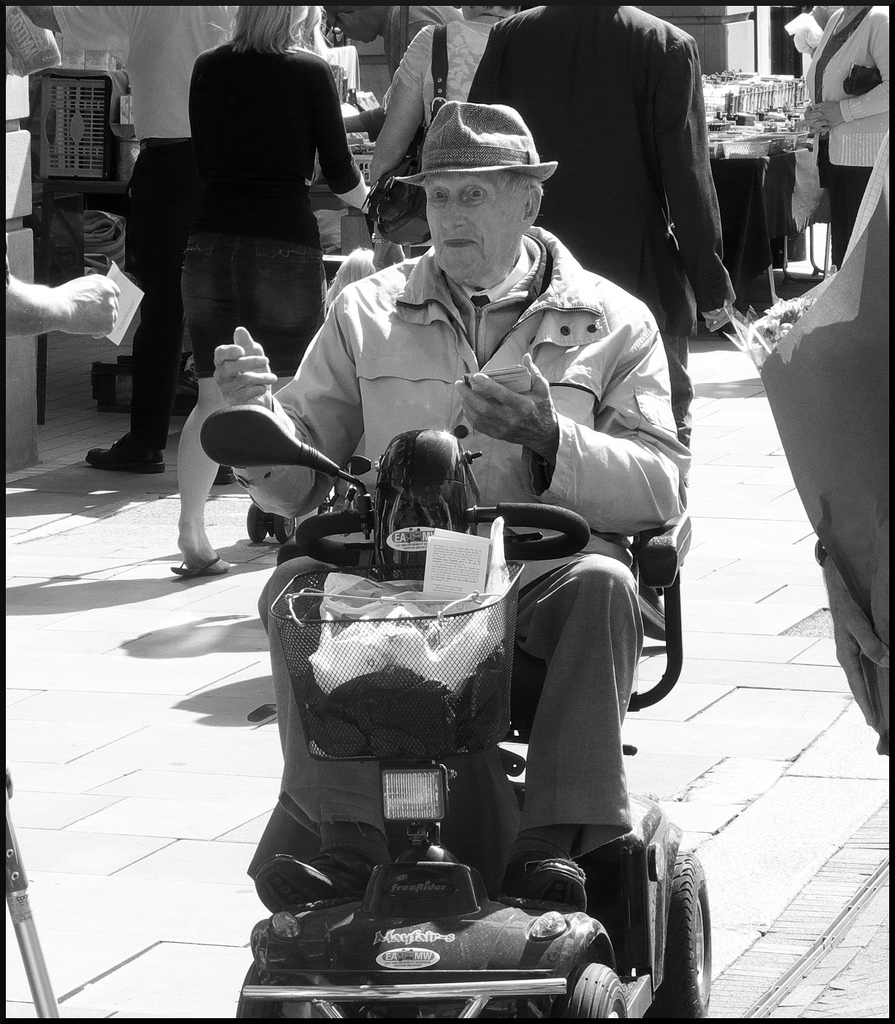NSW Joint Standing Committee on Road Safety (Staysafe) says ‘no’ to registration of mobility scooters. The Staysafe Committee has found there is no compelling case for placing the costs of compulsory registration and insurance of scooters onto the elderly or disabled. However the Committee has recommended that retailers be required to conduct training sessions with all new scooter owners. Also, that local government be encouraged to play a greater role in educating users and non-users about the safety implications of scooters in the community.
“What we are recommending is that these scooters are not sold without appropriate training in their safe use and assessment of the user’s abilities,” said Staysafe Committee chair, Greg Alpin MP.
“Assessment and training must fall on retailers, under a scheme where they can become accredited,” he said.
The project report suggested training should cover: knowledge and skills on safe operation; road regulation and rules; insurance; operation in different pedestrian environments; scooter maintenance and storage; medication use and the safe operation of a mobility scooter.
A number of councils agreed that some form of assessment may be required given the growing use of unregistered motor vehicles with a certificate or statement from a doctor, occupation therapist or physiotherapist confirming the proposed user was fit to operate the scooter.
However, NSW Council of Occupational Therapy Australia, deputy chair, Linda Elliott, told the Committee it can be difficult to judge a person’s capacity to operate a scooter safely. She said there are no standardised assessments to guide testing and there is lack of evidence about the visual capacity needed to safely operate scooters, which require different skills to driving a car.
As well, mandatory assessment could limit people’s access to mobility devices. According to Elliott, the existing requirement for occupational therapists to assess people with disability for a drivers licence is already limiting access to driving a car as they cannot afford to pay the assessment fees.
A mobility scooter survey by the Australian Competition and Consumer Commission in 2012 reported that only 41 per cent of scooter users had input from an occupation therapist or other health professional when buying a scooter.
Training the customer is part of the service at Scooter City. Owner Scott Ranger, said depending on the user, this may require up to an hour with the customer and involved taking the scooter out onto the road with the trainer who is also on a scooter. Ranger said the main issue with scooters is safety and putting the consumer on a safe product. “The stability of the machine is an important factor especially for the elderly user. In a scooter it is the passive safety we are looking at not the active safety. You might think it is safe to ride a bike without a helmet until something happens and 99 per cent of the time it doesn’t, but when it does, and as in the case of a scooter, it pays to be on a scooter that is rock solid stable.”
At Independent Living Specialists (ILS), prospective mobility scooter users are initially attended to by one of the trained showroom managers. If there are any concerns about user competency and their ability to drive a mobility scooter, then they are referred to an ILS occupational therapist.
General manager, Amanda Polwin said the occupational therapist can either do the assessment at one of the five store locations or at the person’s home. “Whilst not all mobility scooter users require education and training, it is always recommended that those less confident seek to attend courses run by organisations such as the NRMA. It is not only the safety of the rider that needs to be considered but pedestrians and cyclists too.” Polwin believes there should be a limit on machine speeds for all users and where speed may be a concern the scooter electronics can be easily adjusted.
In the United Kingdom speed limits look set to be imposed on mobility scooters with drivers restricted to travel no faster than 4mph on the footpath or pedestrian areas and 8mph on the road.
The NSW Government now has six months to respond to the Committee’s recommendations.
Details: www.parliament.nsw.gov.au/staysafe

